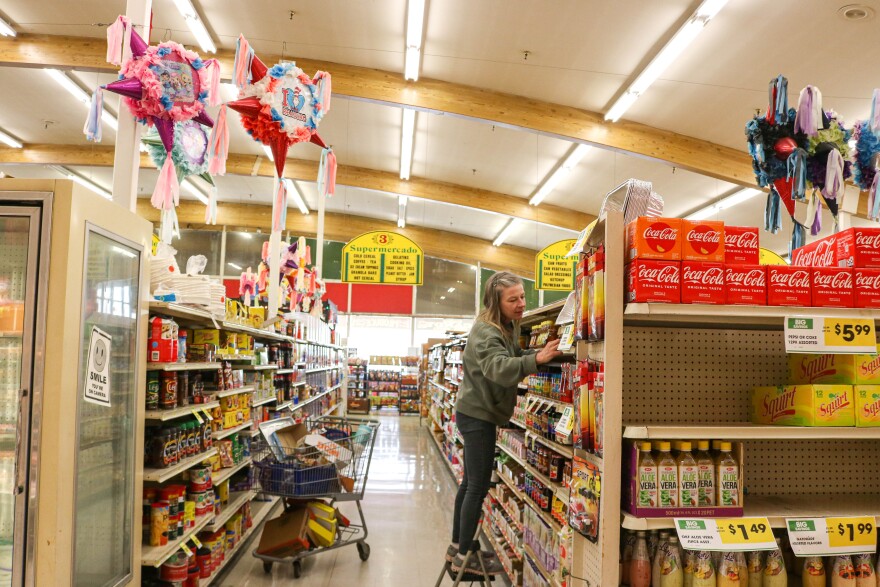Tejeda’s Market, one of the few grocery stores on Salt Lake City’s west side, is on its way to being replaced by new townhomes.
For people in the neighborhood, the Latino supermercado that sells fresh fruit, vegetables and meat is an accessible resource to healthy foods. Some local residents fear that the loss of the grocery store would worsen the area’s food desert.
In June 2021, the Glendale Neighborhood Council announced the proposed townhome development could replace the store. The Salt Lake City Planning Commission unanimously voted to approve the development Wednesday evening.
According to documents submitted to the commission, the development would add 57 residential units to the area and include a community garden space, pickleball courts, and barbecue areas.
Shelly Vredeveld is the store manager for Tejeda’s Market and has worked at the grocery store for 18 years. She also lives in the neighborhood.

Vredeveld said despite the need for fresh food in the community, there hasn’t been enough business to keep the store open.
“If there were more business and more customers, we may not be going through this change that we're about to face now,” she said. “The location — it's not the greatest area — and most people that know about us are the neighborhood people unless you get lost and stumble upon us.”
Now, the grocery store will be moving to West Valley City, about a 10 minute drive from its current location. Vredeveld said she’s concerned about what the people in the neighborhood will lose.
“We have an elderly complex directly behind us and a lot of those people, they don't have cars, they can't get anywhere else,” she said. “Same with a lot of the neighborhood customers. And we get a lot of those that they can't get anywhere else. They can't get to Smith's or to Walmart.”
Brenda Scheer, a Salt Lake City Planning Commission member, acknowledged and sympathized with residents' concerns about food access on the west side.
Scheer said unfortunately, it’s not something they can legally take into account when deciding on developments.
“We operate under the rules that [are] the land use laws of the state and the city,” she said at Wednesday’s commission meeting. “And it is not only frustrating to you, it is also frustrating to us in many ways. Some of these things, which seem like they would come under the purview of planning, are something that we can't talk about. We can't actually vote one way or another based on those requirements.”
Recently, the city created a program to take action on food inequality issues on the westside. They created a Food Equity Advisors program to partner with local residents to develop solutions and recommendations.
One of the advisors’ key recommendations from their 2020-21 report was that the city acknowledge and “address the structural causes of food inequity and injustice, including the role of past and current policy related to housing, zoning, transportation, and economic development.”



